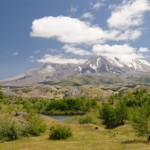The excursion into what was initially a vaguely known arena started with a Wall Street Journal article on 11-8-2011, but then strayed far afield as my learning curve tilted steeply upward.
The article itself dealt with airlines trying out newer biofuels: Alaska Airlines and United were highlighted as having pilot projects in this area. As I read further, scanning online material, international carriers, especially KLM, with 200 flights using 50% biofuels and, impressively, Lufthansa with 1,200 flights using 50% biofuels, are far ahead in this arena.
The fuels come not from corn, as in the United States, or sugarcane, as in Brazil (more on the latter in a subsequent post), but rather from algae, cooking oil, animal fat, and two plants I'd never heard of, Camelina (I'm trying to find it as a cooking oil) and Jatropha.
We had dinner company a few days ago; I was cooking a cabbage dish from the Shan people of Northern Thailand and Mynamar, Lynnette made squash and potatoes simmered in olive oils with both vegetables coming from our weekly CSA allotment. The dinner and subsequent conversations and disagreements (these are close friends and we have differing views on a wide variety of topics) lasted from just after 6 PM to just before 11.
It was immediately obvious that our friends favor oil, gas and coal as fuels. They don't think biofuels, solar energy, wind power, geothermal or tidal energy are economically feasible. They would approve of nuclear energy with appropriate precautions (avoiding building nuclear power plants on known earthquake faults or in areas prone to tidal waves comes to mind).
I think we haven't put enough time, money or brainpower into developing alternative energy sources and urgently need to do so. The political will to accomplish this seems lacking and our faltering, argumentative Congress, polarized as it currently is, hasn't helped the situation.
I certainly agree that subsidizing the growth of corn to be converted into ethanol isn't the way to go. And Brazil, despite its exceedingly osuccessful and sustainable biofuels program, isn't going to be able to supply enough ethanol to fuel the rest of the world.
Our friends said one volcano can add enough greenhouse gas (GHG) to make all our cars' polluting, to mix a metaphor, seem a drop in the bucket.
I don't disagree that the rare volcanic eruption can be catastrophic in this sense as in others (local loss of life and property among them). We've visited Mount Saint Helens (I strongly suggest reading Tim McNulty's 1998 retrospective on the explosion; just Google his name and add that of the mountain).
He makes the point that in this natural disaster, as opposed to industrial clear-cutting, damage was variable, trees, animals and insect survived and the area has come back strongly. I liked the line, "The ecosystem has been through this before."
Yet adding our dollop of pollution is not natural; it may tip us over an edge.
So I am in favor of the pursuit of alternative sources of energy. These may vary from country to country or within a country as the local winds, tides & solar-project possibilities permit.
But it's time and very nearly past time.
http://environment.about.com/od/fossilfuels/a/biofuels.htm
Tags: biofuels, global warming, greenhouse gases, volcanism


